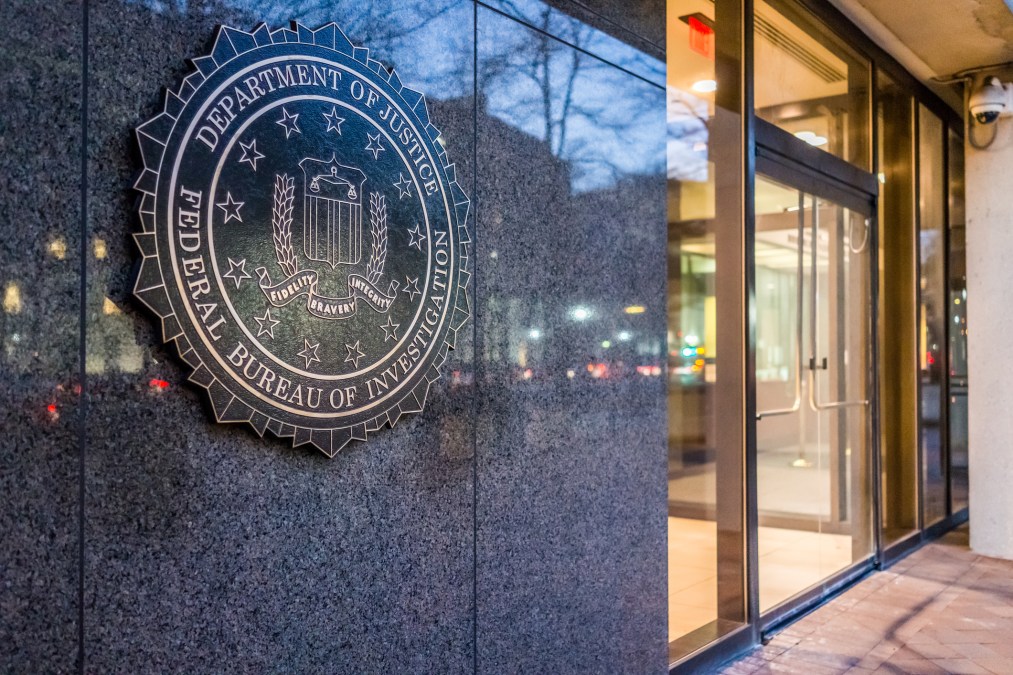FBI’s AI efforts face funding and workforce barriers, OIG finds

The FBI’s ability to fully embrace artificial intelligence has been hamstrung by funding constraints and various workforce and technical challenges, according to a new watchdog report.
The Department of Justice Office of the Inspector General said the FBI has “demonstrated initiative” and taken steps to “integrate AI capabilities in a manner consistent” with guidance from the Office of the Director of National Intelligence. But substantial progress has been difficult to come by due to barriers that have “impeded” more “accelerated adoption” of AI.
Recruiting and retention of technical talent was cited by the DOJ’s chief AI officer as the bureau’s biggest impediment to broader adoption of the technology, noting that compensation for those staffers “is significantly out of step with similar private industry positions.” The Justice Department has not utilized federal hiring authorities to establish alternate pay scales for highly technical work like some other agencies have done for cyber and STEM jobs.
Additionally, FBI staffers interviewed by the OIG said some tech-savvy potential hires are unable to pass background investigations, and recruitment efforts are stymied due to the fact that non-agent positions have “less opportunity for upward mobility” within the bureau.
The funding issues the FBI faces manifest themselves in two primary areas: procurement, and data architecture and IT infrastructure. Bureau personnel told the OIG that the lack of a research and development budget makes procurement especially challenging, given that staffers are largely unable to test unproven AI tools that could aid missions. An FBI official told the OIG that other U.S. Intelligence Community agencies do have R&D budgets, while the bureau has had to rely on one-off requests to ODNI.
Procurement is also a challenge for the FBI, staffers said, because “most commercially available AI products do not have adequate transparency of their software components.” Tools with undisclosed AI embedded in them “could result in FBI personnel utilizing AI capabilities unknowingly and without such tools having been subjected to the FBI’s AI governance,” the OIG wrote. The FBI has, however, leveraged an ongoing partnership with the National Institute of Standards and Technology to test the accuracy of some facial recognition products.
Problems with data architecture and IT infrastructure, meanwhile, can be chalked up to limited resources and a lack of strategic planning, FBI personnel told the watchdog. Funding issues mean the bureau struggles to modernize systems and relies instead on legacy tools.
“Such systems can frustrate the move to AI because they can be difficult to integrate with newer technologies, lack features essential for modern data science tasks, struggle to handle today’s large and complex datasets, and often require more time and manual effort from their users,” the OIG wrote. “FBI personnel also noted that the movement of data and AI tools across classification levels is complicated and requires additional funding to address.”
The report, which found similar AI adoption issues with the Drug Enforcement Administration’s Office of National Security Intelligence, also attributed the federal government’s “fast-changing policy landscape” as a barrier for the bureau, though FBI staffers did not cite that issue specifically.
The OIG delivered three recommendations to the FBI in order for it to comply with AI-related requirements called out in the National Defense Authorization Act for Fiscal Year 2023: finish the Analytical Framework for Emerging and Disruptive Technology (AFEDT) process, assign transaction authorities to officials responsible for research activities, and submit a report to Congress on AI-related efforts to improve intelligence collection.
“We found that the FBI’s efforts to establish policy directives and the AI Ethics Council, initiate an assessment of the uses and needs of AI across the organization, and compile an inventory of AI use cases constitute important initial steps toward promoting the adoption of AI and ensuring AI capabilities are consistent with ODNI guidance,” the watchdog concluded. “However, the FBI must complete its AFEDT process to obtain a better understanding of its AI needs and evaluate how it can use AI to improve intelligence collection and analysis.”






